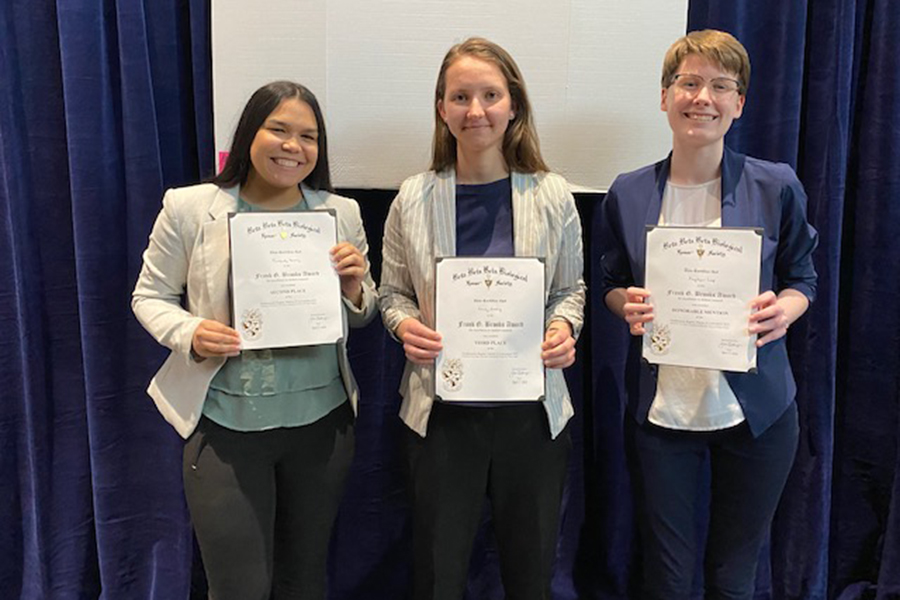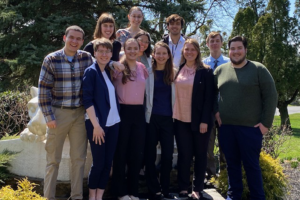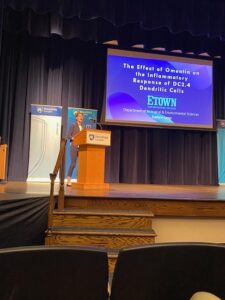Elizabethtown College students from the School of Sciences recently presented research at the TriBeta District Convention on April 1, hosted by Penn State Schuylkill’s TriBeta Biological Honor Society chapter.
This year, 11 Etown students attended the northeast conference as part of the Rho Lambda chapter. The conference was split into two sessions comprised of either poster presentations or oral presentations, with research topics ranging from infectious diseases to cell growth.
“I am proud that Elizabethtown College frequently has the largest cohort of students presenting at TriBeta,” Dean of the School of Sciences Jodi Lancaster said. “It is a wonderful way for faculty and students at other regional institutions to see the high-quality research our students conduct and their excellent presentation skills.”
Three Etown students were recognized for their research in the Frank G. Brooks Awards category, which recognized standout participants who presented their research. Second place was awarded to Biotechnology major Kimberly Manning ’23, third place was awarded to Biochemistry and Molecular Biology major Emily Harding ’23 and Biochemistry and Molecular Biology major Kaylynn Leap ’23 received Honorable Mention.
“To be awarded second place for my presentation means a lot, given that I have poured my heart into this work,” Manning said. “I even stayed over spring break and spent late nights in the lab. To be awarded this recognition made it all worth it!”
The conference included presentations from 18 different chapters of TriBeta, with a total of 17 higher-ed institutions across the northeast region being represented at the event.
“One of my favorite parts of being a scientist is being able to present my research,” Manning said. “Being able to communicate scientific information effectively is a valuable trait that increases accessibility to ‘non-scientists’ to broaden the impact of the work further.”
About Beta Beta Beta
Beta Beta Beta (TriBeta) Biology Honor Society is an undergraduate organization focused on providing a greater awareness of biological study, through research. Since its founding in 1922, more than 200,000 persons have been accepted into lifetime membership, and more than 626 chapters have been established throughout the United States and Puerto Rico.



